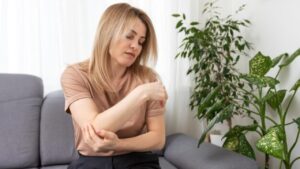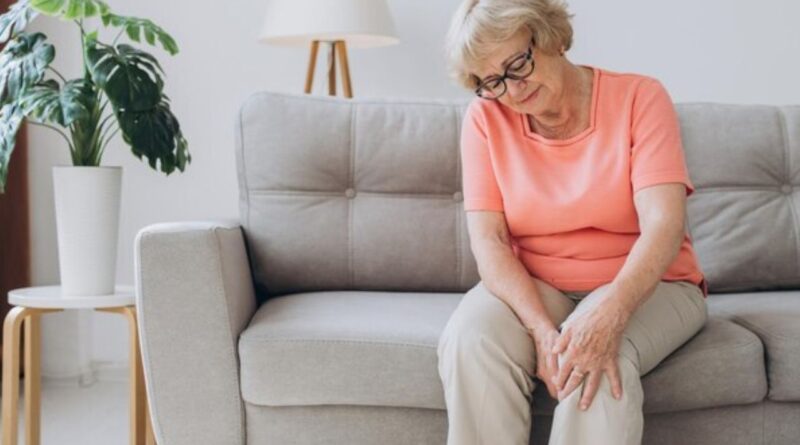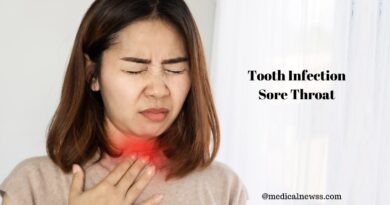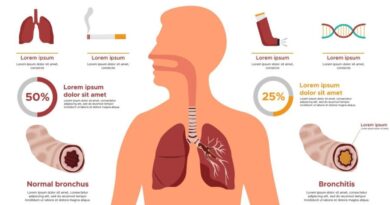Can menopause cause joint pain
How Common is Joint Pain During Menopause?
Changes come with menopause to the female body, and these include joint pains. You might even ask yourself, Can menopause cause joint pain? Well, menopause can indeed impact joints, especially due to the changes in your hormonal balance.
Here’s how:
- Hormonal: changes include a decrease in estrogen, which can affect the joints by causing them to change. This decrease in level can then lead to discomfort and stiffness, allowing joint pain to be more noticeable.
- Weight Gain: During this period, many women tend to experience weight gain. Extra weight puts additional stress on the joints, which in turn can increase pain and discomfort.
- Decreased Activity: Many women during menopause remain less active due to discomfort or tiredness. Less activity makes the muscles weaker and increases joint pain.
What Causes Joint Pain During Menopause?

The question commonly arises, “Can menopause bring on joint pain?” Yes, and these are the following three reasons why joint pain may arise during menopause:
- Hormonal Changes: During menopause, the level of estrogen is reduced. Estrogen is responsible for lubricating and maintaining healthy joints. A reduction in these levels may be responsible for stiffness and pain within the joint.
- Weight Gain: Gaining weight during menopause is common. Extra pounds put additional pressure on the joints, especially the joints in your knees, hips, and back, raising the degree of pain.
- Decreased Activity: Some women, due to fatigue or discomfort during menopause, become less active. A general lack of exercise will weaken the muscles around the joints; this will contribute to increased pain and stiffness.
What to Do About Menopause Joint Pain

If you are asking yourself, “Can menopause cause joint pain?” the answer is yes. Menopause does indeed cause discomfort in the joints due to various hormonal changes.
The following are three ways, quite simple, to deal with that pain:
- Stay Active: Regular walking and/or swimming will help maintain flexibility and strength in joints.
- Maintain a Healthy Weight: One of the prime factors that puts stress on joints is extra weight. Eating a balanced diet would therefore help manage weight for any person and reduce frequent pain in the joints.
- Use Heat and Cold: Apply heat or cold packs to loosen up your joints and relieve any pain associated with them. While cold lowers inflammation, heat relaxes muscles.
Can Supplements Help with Menopause Joint Pain?

Can menopause cause joint pain? Joint pain problems are typical during this stage of the menopause. Supplements can reduce this pain to a great extent.
Here is a list of three supplements that may help:
- Omega-3 Fatty Acids: These fatty acids are derived from fish oil and assist in the reduction of inflammation, which ultimately soothes joint pain.
- Glucosamine and chondroitin: These maintain the health of your joints and may reduce pain and stiffness.
- Vitamin D: Of course, vitamin D is an essential nutrient required for overall bone health as well as for keeping your joints in a healthy state.
When to Contact a Doctor
In the case of menopause joint pain, you may ask yourself, “Can menopause cause joint pain?” Yes, it can. However, below are three instances you need to consult the doctor for.
- Severe Pain: In the case where the pain in your joints is extreme and not relieved through over-the-counter treatments, you need to see the doctor.
- Persistent Symptoms: If joint pains persist for weeks or worsen, seek medical evaluation.
- Other Symptoms: If you experience swelling, redness, or stiffness that limits the movement of the joint, see a doctor to rule out other ailments.
What Menopausal Joint Pain Symptoms Are There?

If you had ever wondered, “Can menopause cause joint pain?” it is yes. Menopause has many possible symptoms involving joint pains.
Here are three of them:
- Stiffness: The joints can be quite stiff and are mostly evident every morning or after keeping them in a static position for a long period.
- Smarting: A person may feel a dull ache in the joints, such as those of the knees, hips, or even the back.
- Swelling: Many women find swelling around the joints, due to which they feel tender and sore.
What percentage of women typically experience menopause joint pains?

If you’re wondering, “Can menopause cause joint pain?” it’s not unusual. Yes, many women suffer from joint pain during menopause. Presented herein is the prevalence perspective for your understanding:
- Prevalence: According to various studies, around 30% to 50% of women develop joint pain during menopause.
- Age Factor: Often, the joint pain starts in a woman during the late 40s and early 60s of age, exactly around menopause.
- It can be mild to extreme, and in extreme cases, even daily activities become a discomfort for many women.
Is HRT supposed to cure the symptoms of joint pain during menopause?
Can menopause cause joint pain? Menopause brings a number of symptoms with its arrival. Among others, a common symptom is joint pain, often experienced by a number of women during this period. HRT has become one of the prescribed ways of dealing with the ill effects of menopause.
The ways in which HRT can look after your joint pain are as follows:
- Hormone Balance: HRT aims at restoring lost hormones during menopause. Such balance may serve to reduce joint pain that is the result of hormonal changes.
- Pain Relief: Stabilization of hormone levels can eventually reduce discomfort and inflammation in joints, hence providing partial relief against the pain.
- Better Movement: Effective HRT may improve flexibility and reduce stiffness, hence helping control the joint pains during menopause.
How to Treat Menopausal Joint Pains

Menopause may be the cause of various aches in your joints, which can definitely trouble you while doing everyday work.
Three easy ways through which you can treat the joint pains during this time are as follows:
- Be active: Your joints will become flexible, and the pain from them will reduce with regular exercises. Gentle works include walking, swimming, or even yoga.
- Wholesome diet: A diet comprising fruits, vegetables, and Omega-3 fatty acids will act like a boon for your joints and keep away the inflammation.
- Pain Reliever: Over-the-counter pain relievers or anti-inflammatory medications may temporarily relieve the pain. Always consult your doctor before taking up any medication.




